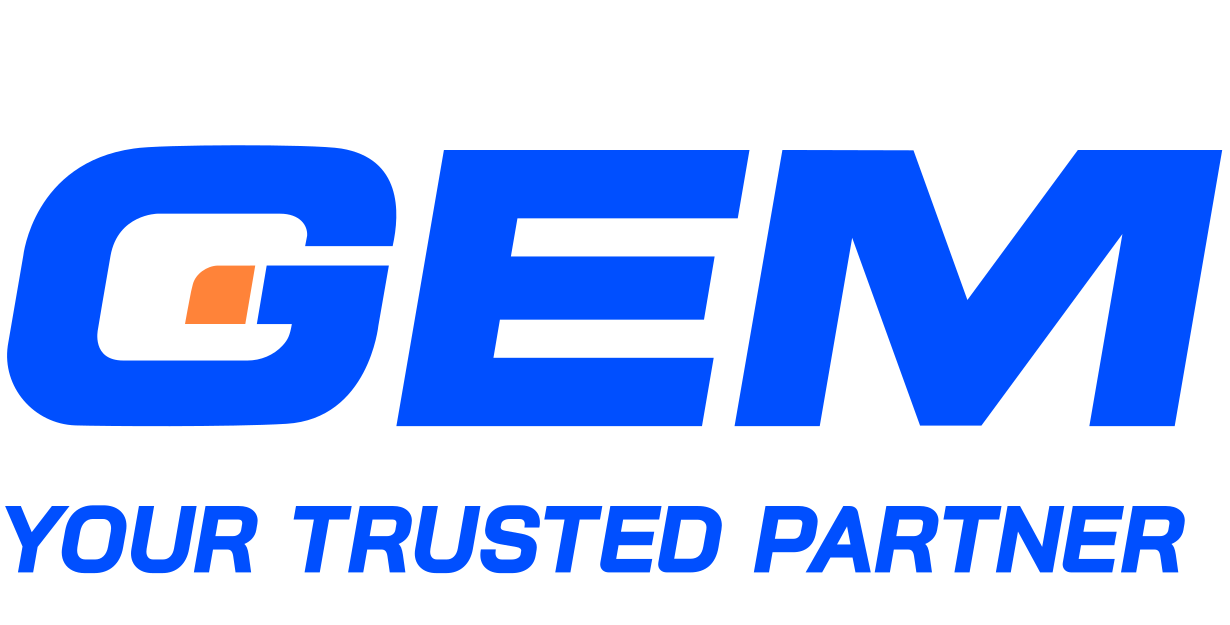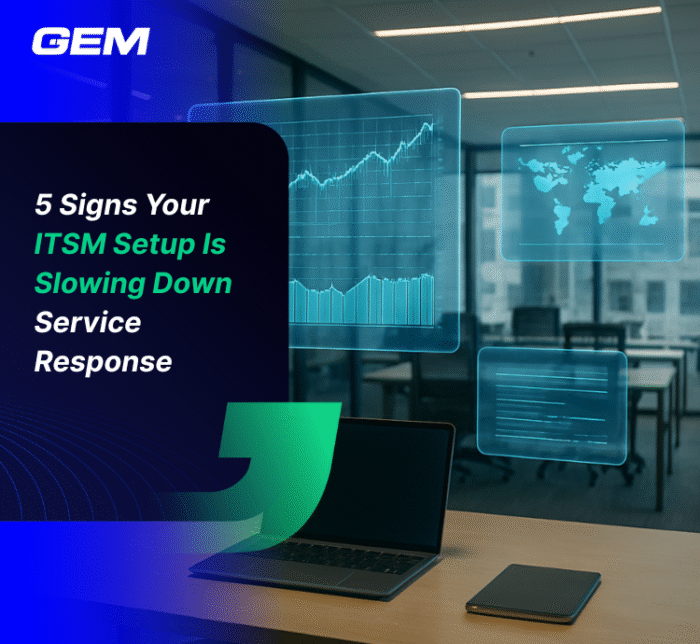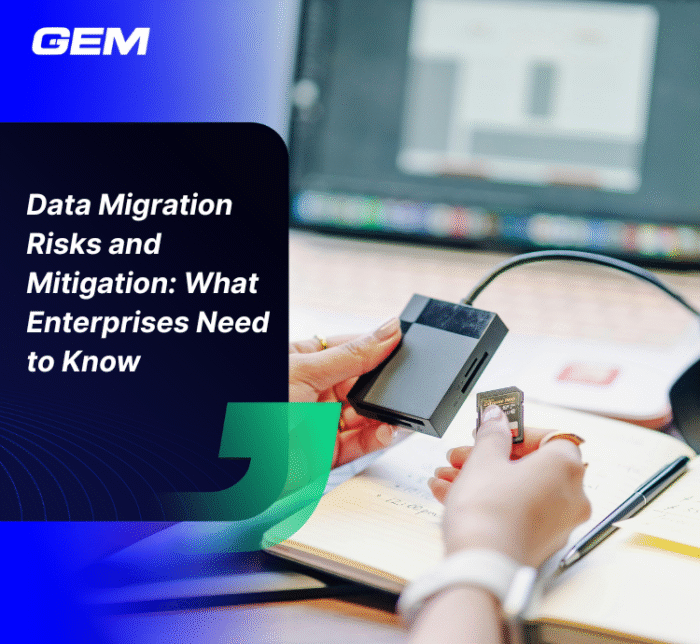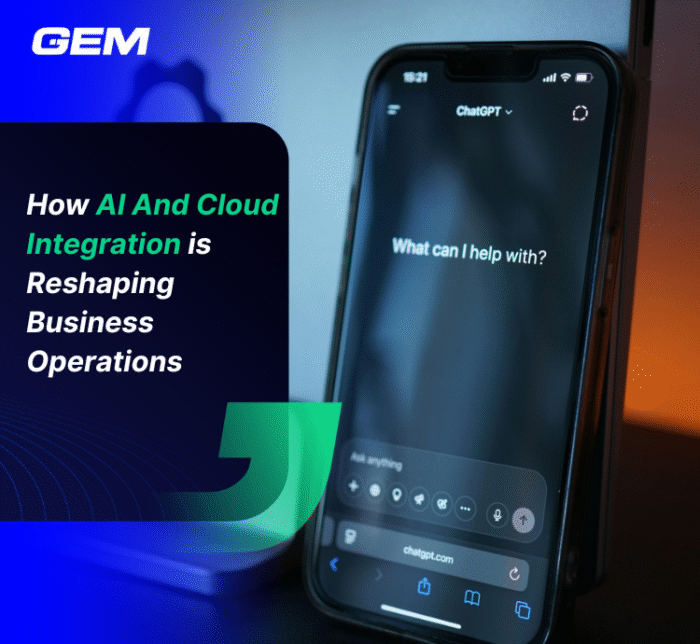Contents
Cloud migration companies are playing a larger role in enterprise IT strategies as more organizations move core systems, data, and applications to the cloud. With growing demand for scalable infrastructure, compliance-ready environments, and AI workload support, this space is expanding fast. The global cloud migration services market is projected to reach USD 70.3 billion by 2030, driven by the need for operational flexibility and long-term cost alignment. In this article, we’ll break down the key trends shaping the space, what to look for in a provider, and which companies stand out in 2025.
Trends Shaping Cloud Migration in 2025

As organizations scale digital operations, cloud migration strategies are being influenced by shifts in technology priorities, regulatory frameworks, and operational goals. In 2025, several forces are shaping how enterprises approach migration, and what they expect from service providers.
Adoption of Multi-Cloud and Hybrid Architectures
Enterprises are increasingly opting for architectures that blend public, private, and on-premise environments. This approach supports flexibility, workload-specific optimization, and compliance with local data requirements.
AI and High-Performance Workload Readiness
With the rise of generative AI and large-scale model training, infrastructure decisions are being driven by GPU availability, data throughput, and integration with AI ecosystems. Cloud migration providers are expected to support these demands during both planning and execution phases.
Focus on FinOps and Spend Transparency
Cost control is a priority. Businesses are not only evaluating cloud providers on pricing models, but also on how clearly they can track, forecast, and manage usage. Migration partners are now judged by their ability to support this level of financial visibility from day one.
Migration as a Business Continuity Strategy
Cloud migration is no longer framed only as a technical upgrade. It now supports broader goals like supply chain resilience, remote operations, and disaster recovery readiness. Providers are expected to align migration roadmaps with these outcomes.
Security, Compliance, and Data Sovereignty
Organizations are facing growing pressure to meet regional compliance standards. Migration strategies must reflect the need for secure data handling, access control, and auditability, especially in finance, healthcare, and public sector environments.
Demand for End-to-End Execution
Businesses are looking for partners that go beyond lift-and-shift. This includes readiness assessments, re-architecting legacy applications, and post-migration optimization. Providers offering outcome-driven services are seeing stronger traction.
What is a Cloud Migration Company?

A cloud migration company provides the expertise, tools, and execution capabilities required to move digital assets, such as applications, workloads, data, and infrastructure, from on-premise systems or legacy environments to cloud platforms. These companies work across various cloud models, including public, private, hybrid, and multi-cloud. They often collaborate with major providers such as AWS, Microsoft Azure, and Google Cloud.
They engage in every phase of the migration process, from assessment and planning to execution and post-migration optimization, while managing risks tied to downtime, data loss, and regulatory compliance.
Partnering with a cloud migration company offers several advantages:
Strategic Planning
Expert guidance on cloud architecture, platform selection, and migration roadmaps based on business objectives and existing IT landscape.
Reduced Operational Overhead During Transition
Specialized teams manage the entire migration process, allowing internal teams to maintain focus on current operations.
Performance Optimization
Workloads are re-platformed or re-architected for cloud-native performance, scalability, and cost efficiency.
Security and Compliance Alignment
Migration processes are built to meet industry-specific security requirements and regulatory frameworks, including data governance and access control.
Faster Time to Value
With proven frameworks and automation tools, migration timelines are shortened, accelerating cloud adoption and return on investment.
Post-Migration Support
Ongoing optimization, monitoring, and managed services help maintain performance and operational continuity after the transition.
How to Choose a Cloud Migration Company that Matches Your Criteria?

Selecting the right cloud migration company goes beyond technical compatibility. It requires aligning with a partner that understands your industry, offers a structured migration approach, and supports long-term business goals. The following criteria can help guide the evaluation process:
Cloud Platform Expertise
Look for companies with proven certifications and delivery experience across leading cloud providers such as AWS, Microsoft Azure, Google Cloud, and Oracle Cloud. Multi-cloud capability is a key differentiator, especially for organizations adopting hybrid strategies.
Migration Approach and Methodology
A structured, phased migration plan covering assessment, design, execution, testing, and post-migration support is fundamental. Based on application complexity and performance goals, evaluate whether the company offers flexibility in migration models, including rehosting, re-platforming, or rearchitecting.
Security and Compliance Capabilities
Security must be embedded throughout the migration lifecycle. Confirm whether the provider can address identity and access management, data encryption, compliance standards (e.g., HIPAA, GDPR, SOC 2), and risk assessments tailored to your regulatory environment.
Industry Experience
Domain knowledge matters. Migration partners with experience in your industry understand sector-specific workloads, compliance obligations, and operational constraints. This can lead to faster execution and fewer surprises during the transition.
Track Record and Client Reviews
Client feedback offers insight into how well a company manages communication, timelines, and unexpected challenges. Look for testimonials, third-party reviews, and long-term client relationships as indicators of consistent service delivery.
Case Studies and Outcome-Based Projects
Request case studies that highlight measurable outcomes, such as cost savings, performance improvements, or modernization of legacy systems. These examples provide transparency into how the company addresses challenges similar to yours.
Pricing Structure and Cost Transparency
Understand how services are priced, whether by workload, resource usage, or outcome milestones. A clear pricing model with no hidden costs helps you manage budgets and avoid scope creep.
Post-Migration Support and Managed Services
Migration is not the end of the journey. Evaluate whether the company offers ongoing support, performance monitoring, cloud cost governance, and optional managed services to maintain operational continuity.
Automation and Tooling
Modern cloud migration partners often bring proprietary tools or automation frameworks that reduce manual work, shorten timelines, and improve consistency. These capabilities can directly impact migration efficiency.
Choosing a cloud migration company is both a technical and strategic decision. A provider that meets these criteria is better positioned to deliver a transition that aligns with business outcomes, while managing risks across every phase of the process.
10 Best Cloud Migration Companies in 2025

Major Cloud Providers
Amazon Web Services (AWS)
AWS remains one of the most adopted platforms for enterprise cloud migration. Its service portfolio addresses every stage of the migration lifecycle – from readiness assessments and rehosting to post-migration modernization. AWS Migration Hub offers visibility across the entire process, while services like AWS Application Migration Service and AWS Database Migration Service support workload portability and data consistency.
For organizations prioritizing scale, security, and service availability, AWS offers a mature ecosystem backed by a global infrastructure footprint. Its partner network also includes hundreds of migration-focused firms, enabling businesses to access tailored consulting and implementation support.
Advantages:
- Broad set of migration tools and automation capabilities
- Advanced identity and access management features
- Strong network of migration partners and system integrators
- Proven support for large-scale enterprise workloads
- Extensive training and certification programs
Azure

Azure is a preferred choice for businesses that run Microsoft-based applications such as Windows Server, SQL Server, and Active Directory. The platform supports both lift-and-shift and modernization strategies through its Azure Migrate suite, which includes discovery, assessment, and migration tools for servers, databases, and web applications.
Azure’s strength lies in its ability to support hybrid deployments, especially for organizations not ready to go fully cloud-native. Integration with existing Microsoft licenses and tools (e.g., Office 365, Power Platform) also simplifies transition planning for many enterprise IT environments.
Advantages:
- Strong hybrid cloud integration with Azure Stack and Arc
- Tight alignment with enterprise Microsoft environments
- Comprehensive governance and policy management tools
- Enterprise-grade compliance certifications across industries
- Support for both on-premise and cloud-native application models
Google Cloud
Google Cloud positions itself as a data-forward platform, making it a strong contender for organizations prioritizing analytics, machine learning, and AI-driven workloads. Migration solutions include Google Cloud Migrate for Compute Engine, Database Migration Service, and specialized tooling for VMware and SAP environments.
The platform’s built-in AI and data tools, such as BigQuery and Vertex AI, offer a compelling path for modernization post-migration. Google Cloud also emphasizes sustainability and carbon-aware infrastructure, which aligns with ESG priorities for many global enterprises.
Advantages:
- Native integration with Google’s AI/ML ecosystem
- Simplified migration tooling for compute, storage, and databases
- User-friendly interface for infrastructure and workload management
- Strong performance in analytics, containerization, and DevOps workflows
- Commitment to sustainable infrastructure and carbon reporting
Cloud Migration Services Companies
GEM Corporation

GEM Corporation is a global IT service provider specializing in cloud migration, digital transformation, and next-generation technology solutions. Since 2014, our company has served over 300 clients from 10+ countries, including Fortune Global 500 enterprises, with a proven track record in complex, enterprise-grade implementations. GEM’s cloud migration services are built around a full-stack delivery model, covering everything from infrastructure assessment and application transfer to post-migration optimization and cost control. We bring deep technical experience across major cloud platforms and deliver tailored strategies that align with each client’s operational and compliance requirements.
With over 400 IT professionals, we operate with an agile mindset and offer round-the-clock support, ensuring business continuity and rapid deployment. Its expertise spans hybrid and multi-cloud environments, AI-powered infrastructure, and cloud-native development, making GEM a preferred partner for businesses pursuing modernization at scale. GEM’s ISO-certified and CMMI-appraised delivery framework reflects our commitment to quality, security, and execution excellence.
Advantages:
- Tailored migration strategy
- Multi-cloud & hybrid cloud expertise
- Security & compliance built-in
- Domain knowledge industries
- Post-migration optimization
Accenture
Accenture brings deep enterprise consulting experience to cloud migration projects, with a focus on complex, multi-phase transformations. Its Cloud First initiative integrates strategy, engineering, and managed services to support migrations across AWS, Azure, Google Cloud, and Oracle. The firm’s strength lies in combining technical execution with business transformation, often layering analytics, cybersecurity, and AI into the migration scope.
Accenture also supports industry-specific modernization, with tailored frameworks for sectors such as banking, healthcare, and manufacturing. Its global delivery capabilities and strong partner network make it a preferred choice for Fortune 500 clients.
Advantages:
- Deep industry expertise
- Access to strategic advisory services
- Large team with global reach
Deloitte
Deloitte approaches cloud migration as part of a broader modernization and business growth strategy. Its Cloud Engineering practice works across major platforms and integrates cybersecurity, risk management, and financial modeling into migration planning. The firm emphasizes value realization by aligning technical migration with business KPIs such as agility, cost control, and product innovation.
Deloitte also supports regulated sectors, offering compliance-aligned migration roadmaps and cloud governance frameworks. Their global scale and cross-functional teams make it possible to execute large, multi-region migrations with minimal disruption.
Advantages:
- Strong strategy and business alignment
- Comprehensive approach to cloud adoption
- Global consulting presence
IBM

IBM focuses on hybrid cloud and AI-enabled transformation, particularly for enterprises operating in regulated or complex IT environments. With IBM Consulting and Red Hat OpenShift, the company supports both cloud-native and legacy workloads across private and public clouds. IBM’s Cloud Migration Factory framework delivers standardized tooling, automation, and risk mitigation strategies.
The company’s AI heritage also allows for integration of predictive analytics into infrastructure planning. Security, compliance, and workload portability are core to IBM’s positioning, especially in finance, telecom, and public sector deployments.
Advantages:
- Strong in regulated industries
- Powerful hybrid cloud capabilities
- Advanced security and compliance support
Rackspace
Rackspace offers hands-on, managed migration services with a focus on multi-cloud environments, including AWS, Azure, and Google Cloud. Known for its Fanatical Experience™ support model, Rackspace helps businesses navigate cloud complexity with dedicated technical teams and 24/7 support. The company provides assessment, planning, execution, and post-migration optimization, often serving as an extension of a client’s IT team.
Rackspace’s strength lies in its ability to standardize processes without losing flexibility, making it a fit for mid-market and enterprise clients. It also offers proprietary tooling to improve visibility and speed during migration.
Advantages:
- Deep technical support
- Works across multiple platforms
- Strong focus on customer success
Wipro

Wipro delivers cloud migration services through its FullStride Cloud platform, combining consulting, engineering, and managed services. The company supports migrations to AWS, Azure, Google Cloud, and industry-specific private clouds. Wipro brings automation and AI into the migration process, helping reduce manual workloads and accelerate timelines. Its delivery model is rooted in global centers of excellence, enabling 24/7 execution and localized compliance support. Wipro often serves clients in manufacturing, energy, and financial services, where legacy infrastructure and security requirements demand specialized planning.
Advantages:
- Integrated consulting and engineering approach
- Automation-driven migration frameworks
- Strong delivery network across industries
Conclusion
The landscape of cloud migration companies in 2025 reflects a shift toward integrated, outcome-driven partnerships. From hyperscalers like AWS, Azure, and Google Cloud to global consultancies and specialized providers, each brings distinct strengths, from platform depth and hybrid models to strategic advisory and white-glove support. For businesses navigating complex environments, selecting the right partner is a decision that shapes resilience, scalability, and future innovation.
To explore a migration strategy tailored to your organization’s needs, contact GEM Corporation and speak with our cloud experts today.






